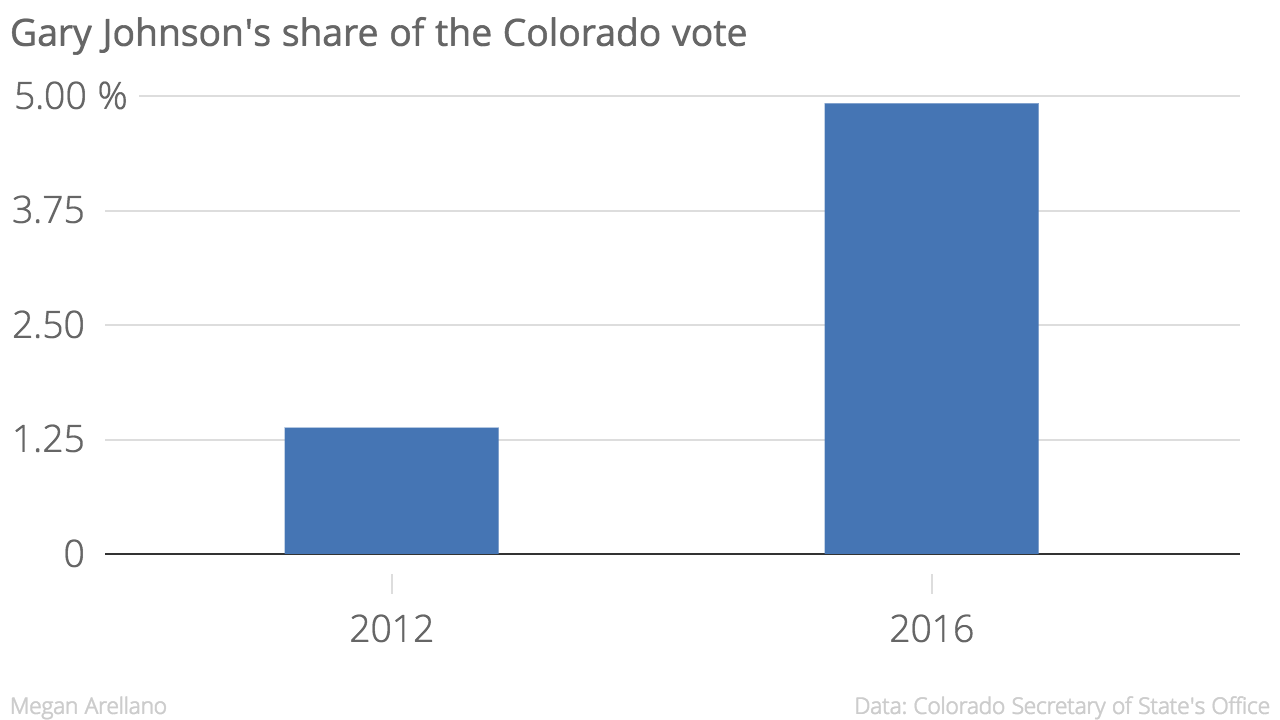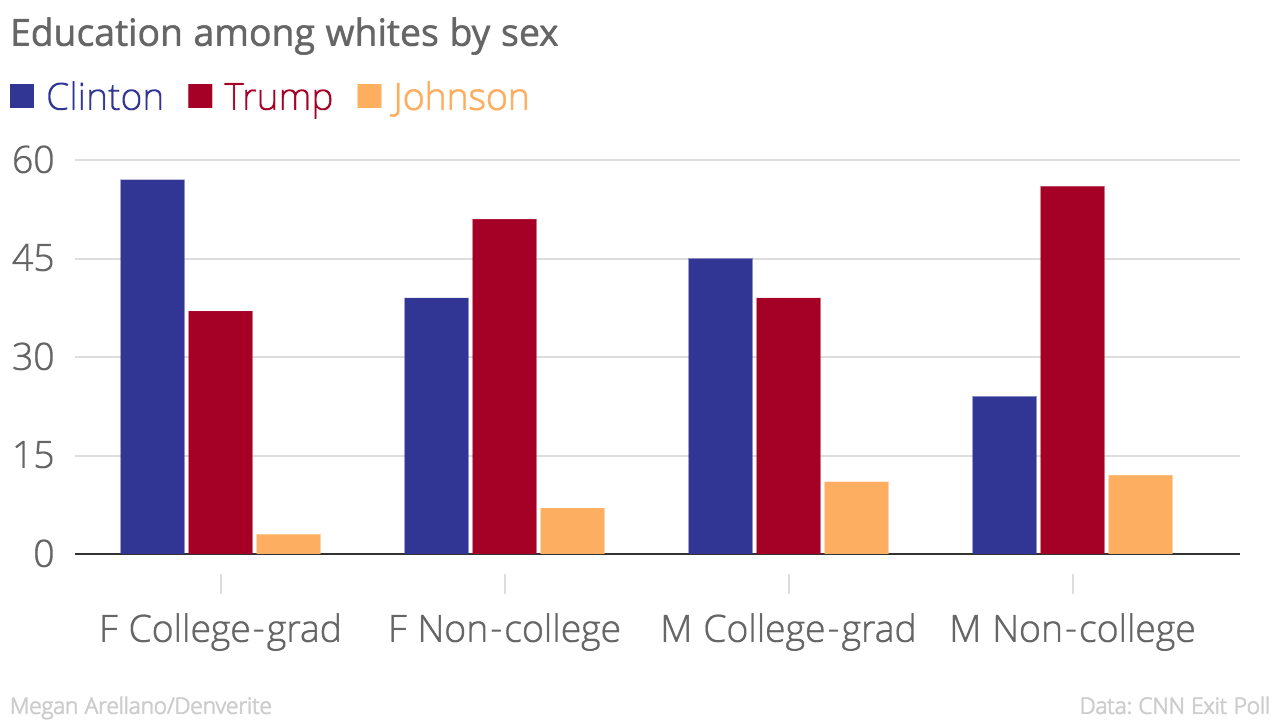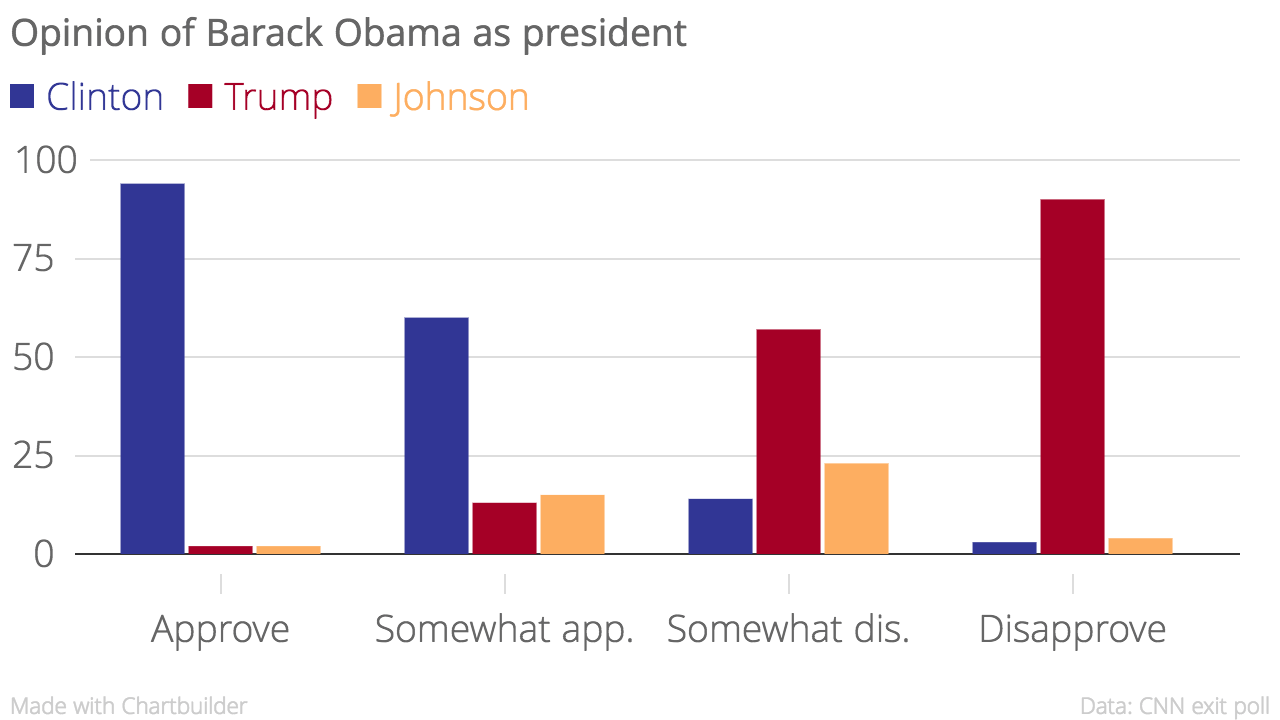What a difference four years makes. Perhaps you remember that Gary Johnson also ran for president in 2012. Back then, he only ended up with 1.38 percent of the vote. This time, he received 4.92 percent of the vote.

It sounds like a paltry amount, but consider this: Trump and Clinton were separated by only 2.11 percent in Colorado. So what was Johnson effect in the state?
About a month ago, Bloomberg Politics identified Colorado as a potential problem for Clinton should Democratic-leaning voters all choose a third-party candidate. They predicted that if 16 percent of the vote went third-party, then Clinton could lose her margin of victory.
All told, only 8.13 percent of Colorado's vote went to third-party candidates. Johnson's 4.92 percent was the biggest share of that, but we can say that he didn't spoil Colorado for Clinton. Not least of all because, well, Clinton won Colorado.
Did Johnson's share of the vote come from likely Trump voters then? Perhaps he helped Hillary.
Johnson's campaign manager doesn't think so. He told Politico that Johnson pulled votes from both Clinton and Trump at the national level.
Alright, but what do the exit polls say? I don't blame anyone who never wants to look at a poll ever again, but they are the most current data set that we have.
According to CNN's exit polls, Johnson didn't win a majority of any age, sex, education-level or racial group. But there were a few notable areas where Johnson grabbed a significant chunk of people.
It has been said that Trump's strategy relied heavily on white Americans without college degrees. In Colorado, Johnson captured 9 percent of those voters to Trump's 53 percent.
But maybe it's more about race and gender than education. Johnson captured 12 percent of white non-college-educated men, sure, but he also grabbed 11 percent of white college-educated men.

Johnson capturing a larger share of white male voters could indicate that in Colorado, his votes came from people who might have otherwise favored Trump.
Another inkling that Johnson may have grabbed some potential Trump voters lies in how Obama was perceived by exit voters.
People who voted Clinton largely said that they either strongly approved or somewhat approved of Obama. People who voted Trump largely disapproved of Obama. People who voted Johnson were pretty much in the middle, but more of them disapproved of Obama than approved of him.

In conclusion, let's not forget that FiveThirtyEight devoted 40 minutes to trying to figure out whether Ross Perot really did spoil the election for George H. Bush and couldn't really concretely conclude much. It's hard to say whether people who voted for Johnson might have voted Trump with some demographics. It's hard to know whether we should even believe any polls anymore.











